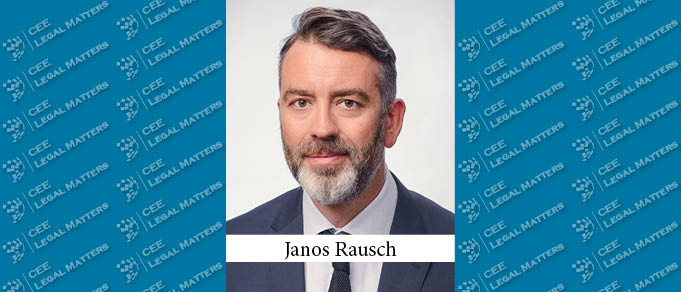Ban, S. Szabo, Rausch & Partners’ busiest practice has been M&A, primarily driven by the consolidation trend in the Hungarian market, availability of investment money, alongside major companies seeking product diversification, according to Managing Partner Janos Rausch.
“M&A transactions – both large-scale and medium-sized, have kept us extremely busy last year,” Rausch explains. “To name a few,” he says, “we established strong cooperation with fund managers such as Focus Ventures, who we advised in some of their recent investments. We represented E.on Hungaria on the sale of Elmu-Emasz to MVM. The MOL Group is one of our recurring clients as well.” The list of clients and transactions, according to Rausch, is quite varied.
Rausch notes, that it is rather difficult to highlight one particular factor that led to this trend. “The main driver behind increased M&A activities is the consolidation trend in the Hungarian market,” he points out. “Otherwise, the parallel availability of investment money and having interesting targets is also a fundamental reason for investments in certain projects and companies. Last but not least, service and product diversification of major players like MOL is also part of the reasons for these transactions.”
Looking ahead, Rausch points out that it is difficult to predict the future, especially with respect to transactional work. “The economic situation in Hungary is not so good at the moment and the recent changes to taxation might lead to reduced activities in many fields,” he says, noting that “some of the old projects are stopped, energy prices have peaked, and a war in a bordering country are not promising factors at the moment.”
“Our experience tells us that M&A deals tend to dry out in an economic environment where there is stagnation and uncertainty,” Rausch notes. “The situation was similar during 2008 when a huge boom of M&A work preceded a downward trend in the subsequent two to three years. That being said we remain optimistic and maintain our focus on M&A. We are fortunate that our M&A team and the competition law team are busy with some transactions in the automotive business that will carry us through the rest of this year and probably the beginning of next year also.” At the same time, he notes, “we also focus on some of our other traditional practice areas such as regulatory, corporate, litigation, and energy which areas are less sensitive to recessions. We are confident that these practice areas will continue to provide a steady stream of work for us.”
